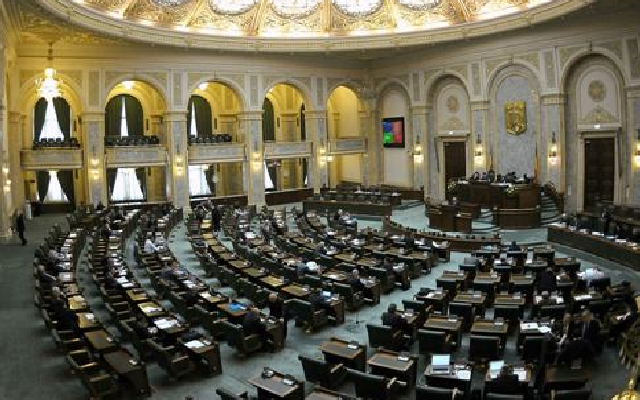Romania’s Gold Reserves
Romania's gold reserves could be repatriated, according to a draft law passed by the Senate

Mihai Pelin, 02.04.2019, 13:24
The Senate in
Bucharest passed a bill whereby the Central Bank must repatriate nearly all the
country’s gold reserves stored in foreign countries. The Chamber of Deputies
will give its final vote before submitting the bill to President Klaus Iohannis
for ratification. The bill was spearheaded by Social-Democrat leader Liviu Dragnea
and Social-Democrat Senator Serban Nicolae. The two claim Romania’s gold
reserves abroad are not reporting any revenues, but simply covering the storage
costs. The National Liberal Party, People’s Movement Party and Save Romania
Union in opposition have criticized the bill and said would vote against it.
Serban Nicolae said Romania’s gold reserves, currently totaling 103.7 tons, is
65% stored a broad at the Bank of England and in Switzerland, while the
remaining 40 tons are stored at Romania’s Treasury, at the National Bank of
Romania. There is no reason left to justify keeping so much gold abroad, Serban
Nicolae went on to say, adding that the bill is not a sanction against the
Central Bank. Serban Nicolae:
This is not a sanction against the National Bank of Romania. We are not
criticizing the way the Bank has managed these reserves. We are not planning on
modifying the way the Central Bank is managing our international reserves, just
the gold.
The opposition
has voted against the bill, saying it’s a populist measure in an election year,
with devastating effects for the economy. Here is Vlad Alexandrescu, Senator
for Save Romania Union:
The measure lacks any economic and financial justification. The only
explanation is that Dancila’s Cabinet has almost depleted its funds and can no
longer pay pensions and salaries. The Government is now planning to adopt
radical measures in the field of the judiciary, which could trigger sanctions
against Romania and isolate our country at international level.
Romania’s
account at the Bank of England was opened in 1990, London being one of the
world’s top financial centers. The gold was transferred from 1999 to 2002. Our
country pays a yearly fee for its storage. Repatriating the gold would however cost
more than its storage, experts have warned. Besides, when a country has gold
reserves, its external loans have better ratings. Romania deposited its first
gold reserves abroad during World War II, when it deposited 11.6 tons at the
Federal Reserve in the United States, 10.2 tons at the Bank of England and 25.4
tons at the Bank of Switzerland.






























